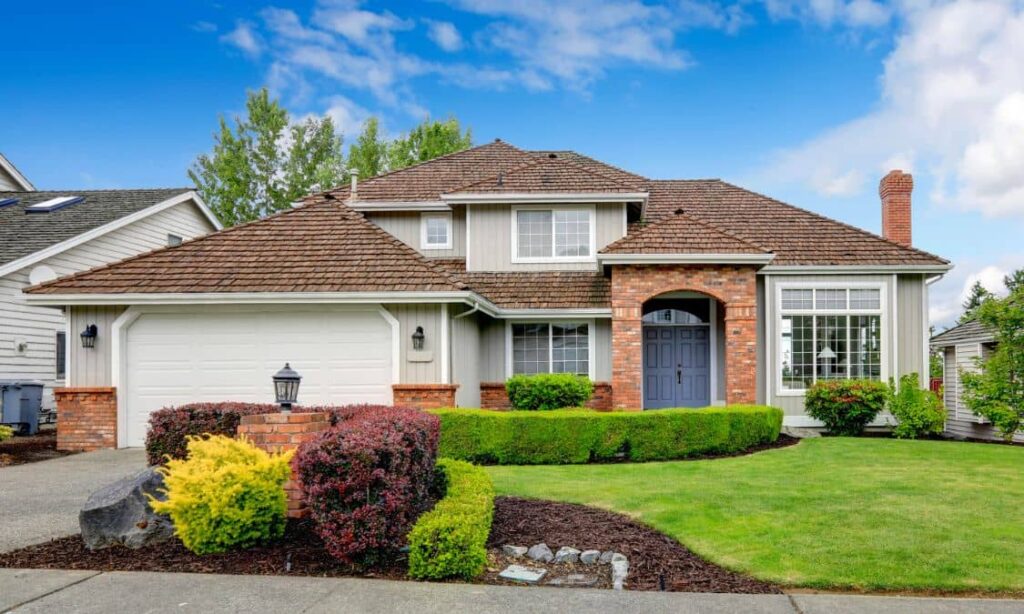
Understanding the Basics: What Is Brick? What Is Masonry?
When planning a building project, one of the first decisions you’ll face is choosing between brick and masonry. While they’re often mentioned together, they’re not interchangeable. Understanding the difference can save you time, money, and headaches.
What Is Brick?
Brick is a building unit made from clay, shaped and fired at high temperatures. These durable blocks have been used for centuries to construct everything from chimneys to entire homes. In the world of brick and masonry, brick stands out for its clean lines and uniformity.
What Is Masonry?
Masonry refers to the overall craft or method of constructing with individual units—like brick, stone, or concrete blocks—held together with mortar. So, while brick is a form of masonry, masonry as a term includes many materials and styles beyond just bricks.
Types of Masonry in Construction
Let’s explore the types of masonry commonly used alongside or instead of brick:
Brick Masonry
This is the most traditional type of brick and masonry work. It’s widely used in residential and commercial builds for walls, facades, and decorative features.
Stone Masonry
Stone is rugged, visually dramatic, and incredibly strong. Whether natural or cut, it brings character and lasting durability to your exterior.
Concrete Block Masonry
Concrete blocks are larger than bricks, making them quicker to install. They’re a popular choice for structural walls in modern buildings.
Brick vs Masonry: Breaking Down the Differences
Here’s how brick and masonry compare across key areas:
| Aspect | Brick | Other Masonry |
| Material | Clay-based | Stone, concrete, synthetic |
| Appearance | Uniform | Textured and varied |
| Strength | Moderate to high | Stone offers superior strength |
| Cost | Moderate | Stone is more expensive, blocks are cheaper |
| Labor | Easier to install | Stone requires skilled labor |
| Longevity | 75+ years | Stone = 100+ years |
| Use | Homes, fireplaces, walkways | Retaining walls, commercial buildings, luxury homes |
When to Choose Brick for Your Project
Brick and masonry projects aren’t all created equal. Brick is ideal when you want uniformity, speed, and classic appeal.
Great Uses for Brick:
- Residential exteriors
- Garden pathways
- Patios and courtyards
- Chimneys and columns
Pros of Brick:
- Easier and faster to install
- Less expensive than stone
- Low maintenance
- Time-tested durability
Cons:
- Less variation in design
- Can crack in freeze-thaw climates without proper care
When to Choose Other Masonry Options
Sometimes, brick alone won’t cut it. That’s where other masonry materials like stone or concrete blocks come in.
Ideal Projects for General Masonry:
- Sloped landscaping (retaining walls)
- Large structural walls
- Rustic, high-end aesthetics
Benefits:
- More visual variety
- Stronger load-bearing capacity
- Greater customizability
Drawbacks:
- Higher cost
- More complex to install
How to Choose Between Brick and Masonry
Choosing between brick and masonry depends on a few key factors:
- Project Type: Brick is great for facades; stone works better for load-bearing walls.
- Budget: Brick costs less in materials and labor.
- Style Goals: Want sleek and traditional? Go with brick. Prefer organic and bold? Go with stone or mixed masonry.
- Climate: In wetter, colder areas, certain stone types may outperform brick in durability.
Myths About Brick and Masonry Debunked
“Brick and Masonry Are the Same Thing”
They’re related, but not identical. Think of brick as one option within the broader masonry family.
“Brick Is Always Cheaper”
Brick usually is, but intricate brickwork can rival or exceed some masonry costs.
Cost Breakdown: Brick vs Masonry Options
| Material | Avg Cost (Installed) | Best For |
| Brick | $12 – $25 per sq. ft. | Exterior walls, walkways |
| Stone Masonry | $25 – $50 per sq. ft. | Retaining walls, accents |
| Concrete Block | $10 – $18 per sq. ft. | Structural walls, garages |
FAQs
1. Is brick a type of masonry?
Yes! Brick is one of the most commonly used forms of masonry.
2. Which is stronger—brick or stone masonry?
Stone masonry is generally stronger, but brick is still very durable and suitable for most homes.
3. Are all masonry materials fireproof?
Most are. Brick and natural stone are fire-resistant, adding safety to your structure.
4. Can you combine brick and masonry materials?
Definitely. Many modern designs use both for texture and contrast.
5. Which requires more maintenance?
Both are low maintenance, but stone may require sealing depending on the type.
6. Can I DIY brick or masonry work?
Simple brick projects like small patios may be DIY-friendly. For stone or structural work, it’s best to hire a pro.
Make the Right Choice Between Brick and Masonry
Both brick and masonry offer strong, attractive, and long-lasting options for your next building project. The real difference lies in your needs and goals. Brick is ideal for traditional, budget-friendly builds. Masonry—especially stone or block—offers more strength and versatility for larger or more custom projects.
Bottom line: There’s no one-size-fits-all answer. The best material is the one that fits your budget, style, and vision.